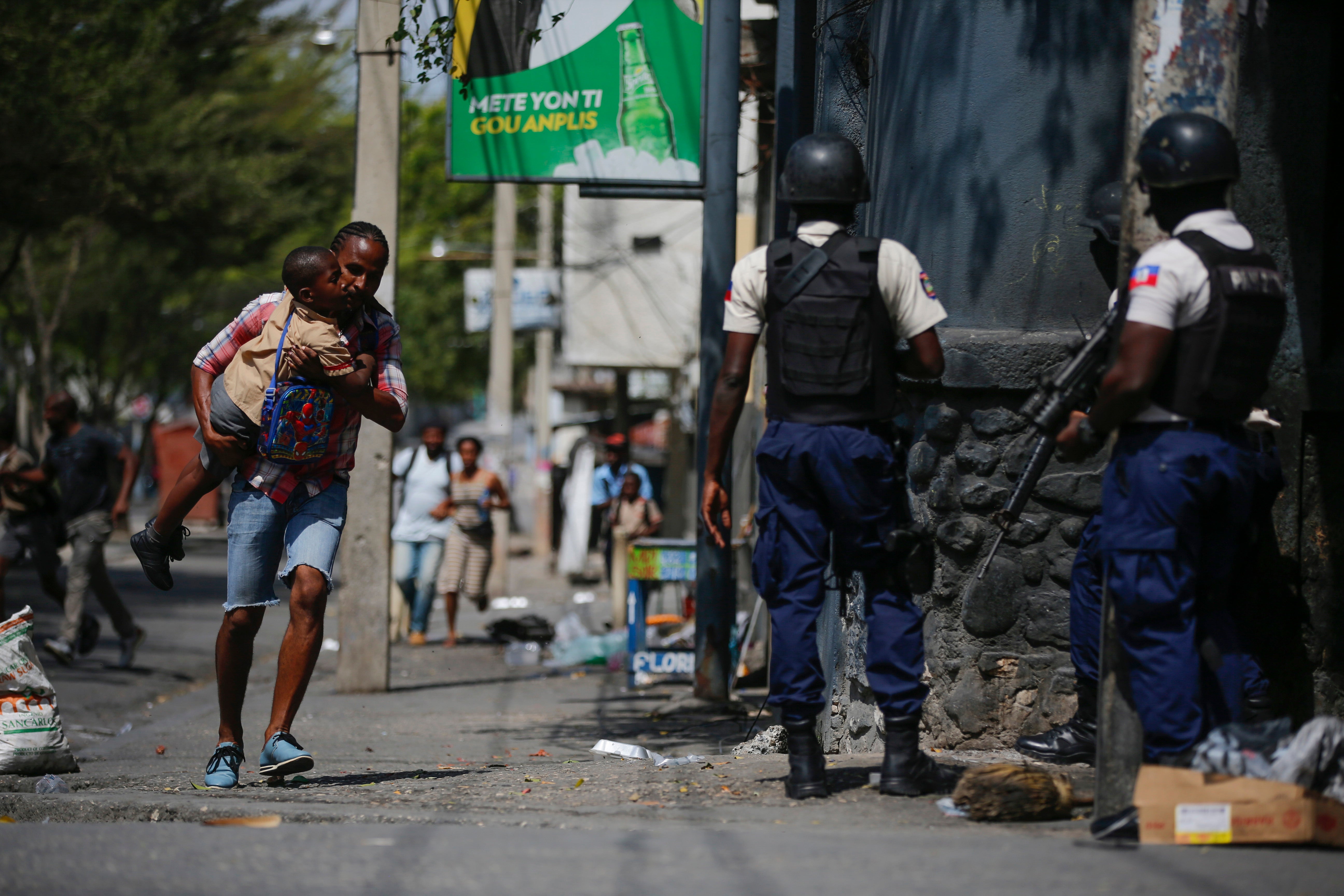UN warns gangs consuming Haiti despite help for police
The U.N.’s special envoy to Haiti has warned that the ongoing training and resources the international community is providing to Haiti’s police force is not enough to fight increasingly violent gangs

Your support helps us to tell the story
From reproductive rights to climate change to Big Tech, The Independent is on the ground when the story is developing. Whether it's investigating the financials of Elon Musk's pro-Trump PAC or producing our latest documentary, 'The A Word', which shines a light on the American women fighting for reproductive rights, we know how important it is to parse out the facts from the messaging.
At such a critical moment in US history, we need reporters on the ground. Your donation allows us to keep sending journalists to speak to both sides of the story.
The Independent is trusted by Americans across the entire political spectrum. And unlike many other quality news outlets, we choose not to lock Americans out of our reporting and analysis with paywalls. We believe quality journalism should be available to everyone, paid for by those who can afford it.
Your support makes all the difference.The U.N.’s special envoy to Haiti warned Wednesday that the ongoing training and resources the international community is providing to Haiti’s national police force is not enough to fight increasingly violent gangs.
Helen La Lime, head of the U.N.'s Integrated Office in Haiti, unexpectedly joined an Organization of American States meeting in Washington, D.C., saying it’s time to look at new partnerships as she called once again for the deployment of a specialized foreign force.
“We’re not getting the job done,” she said. “We need to get down to the business of building this country back.”
Powerful gangs have been infiltrating once peaceful communities in the Haitian capital and beyond, with experts estimating that they now control about 60% of Port-au-Prince. They have pillaged neighborhoods, raped adults and children and kidnapped hundreds of victims ranging from U.S. missionaries to a hot dog street vendor in a bid to control more territory, with violence worsening since the July 2021 assassination of President Jovenel Moïse.
“It is urgent for the OAS…to understand that the worsening security situation on the ground has reached its peak, and armed gangs now roam the country unfettered,” said Victor Généus, Haiti’s foreign affairs minister.
Top Haitian officials including Généus and Prime Minister Ariel Henry have repeatedly sought international boots on the ground, a request first made in October that has gone unheeded by the U.N.’s Security Council, which has instead implemented sanctions.
“The time has come for deeds, not words,” Généus said. “Haiti does not have the means to resolve this crisis alone.”
Haiti’s National Police has only 9,000 active duty officers in a country of more than 11 million people, and officials say the department remains under resourced and understaffed despite international help.
“It’s not enough to have weapons. It’s not enough to strengthen the National Police and Army,” said Léon Charles, Haiti’s permanent representative to the OAS and the country’s former police chief.
At least 78 police officers have been killed by gangs, which have seized control of police departments in some areas and burned others, according to human rights activists.
The spike in violence also has left tens of thousands of Haitians homeless and prompted a mass migration to the U.S. and other islands in the Caribbean, with an increasing number of voyages aboard rickety boats turning fatal. Meanwhile, officials in nations including the Dominican Republic, the Bahamas and the Turks and Caicos Islands have cracked down on migrants and complained about the strain that they have placed on government services.
“The security problem of Haiti pose a threat to the entire region,” Généus said.
The OAS called the meeting to analyze what kind of assistance is needed and where so Haiti can finally hold long-awaited general elections.
Before OAS members went behind closed doors to continue the discussion, La Lime said Haiti urgently needs a safer environment before elections are held.
“Nothing is going to move unless the situation on the ground…changes,” she said. “Without more security assistance…they’re not going to make it.”